Late to the Party: Lost Judgment
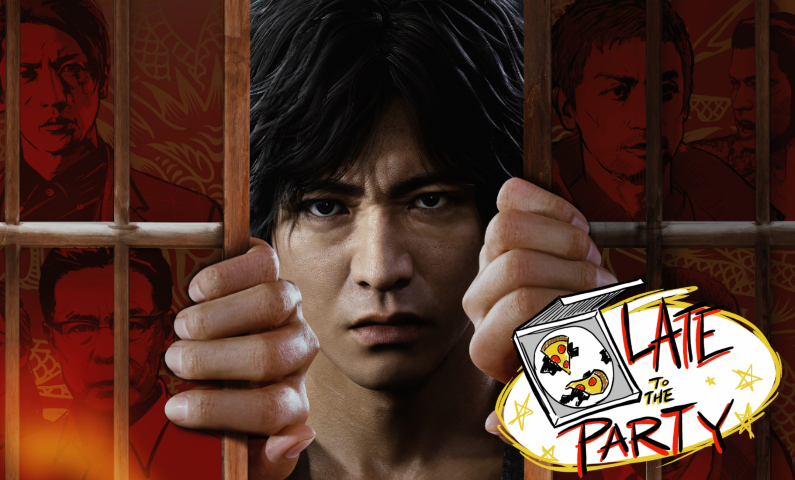
 eing a Spin-Off from a popular series is hard because you’re either as beloved as Family Matters, or as forgettable as The Cleveland Show—the reception to these ventures is rarely in-between.
eing a Spin-Off from a popular series is hard because you’re either as beloved as Family Matters, or as forgettable as The Cleveland Show—the reception to these ventures is rarely in-between.
Ryu Ga Gotoku Studio’s first foray into the Yakuza Universe outside of Kiryu’s story continuity, Judgment, fringes between both ends of that measuring stick. The crux of this weakness fell upon its failure to carve a meaningful identity of its own from the rich source material it pulls from, well, aside from a fickle protagonist who was charming one second and irritatingly cringe-worthy the next at the very least.
Inconsistent delivery aside though, the premise of an Ex-Lawyer turned Private Eye in the world of Kamurcho still carries plenty of merits to re-visit in its own right, especially with mainline Yakuza series shifting into the Turn-Based RPG Genre for the indefinite future. This is where the follow-up sequel to Takayuki Yagami crime-solving caper, Lost Judgement, comes into the grand picture.
The Private Eye’s latest case leads him to the rough streets of Ijincho, and the setting isn’t the only thing that’s new as Lost Judgment is a sequel that boldly builds upon its formula instead of trying to deliver a familiar formula with some forced twists, making for an immensely better experience this time around.
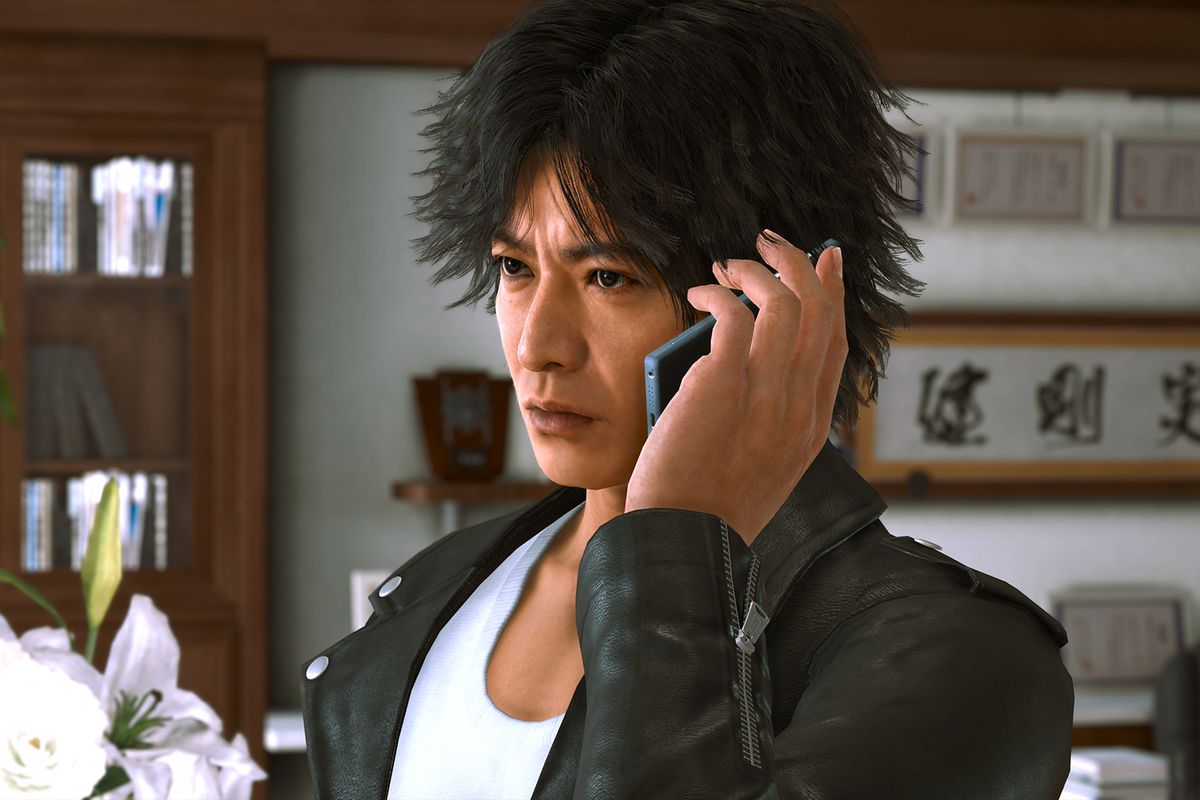
Easily the biggest improvement in this sequel is how much better-paced it is in contrast to the previous entry. Instead of the drawn-out exposition dumps that are parsed between brief moments of gameplay, Lost Judgement does more to integrate the narrative flux of its plot into the direct action of the game, making for a more immersive playthrough as a result. Within the first hour alone, Lost Judgment managed to break down the basics of its combat, deductive skills, and much-improved Parkour dynamics without missing a step, delivering an engaging start to the drama instead of fizzling out to a slow burn into the next Chapter. Another factor to its smoother gameplay is the refinement of one its biggest gameplay hooks, the Investigative mechanics. Even after their clumsy introduction in the previous entry, many of the Investigative techniques were consistently awkward to use, failing to attune with the ebb and flow of its Open-World setup. Lost Judgment on the other hand fixes this with an easy access macro menu and a streamlined execution of the abilities themselves that make the switch between fighting and analyzing far more seamless.
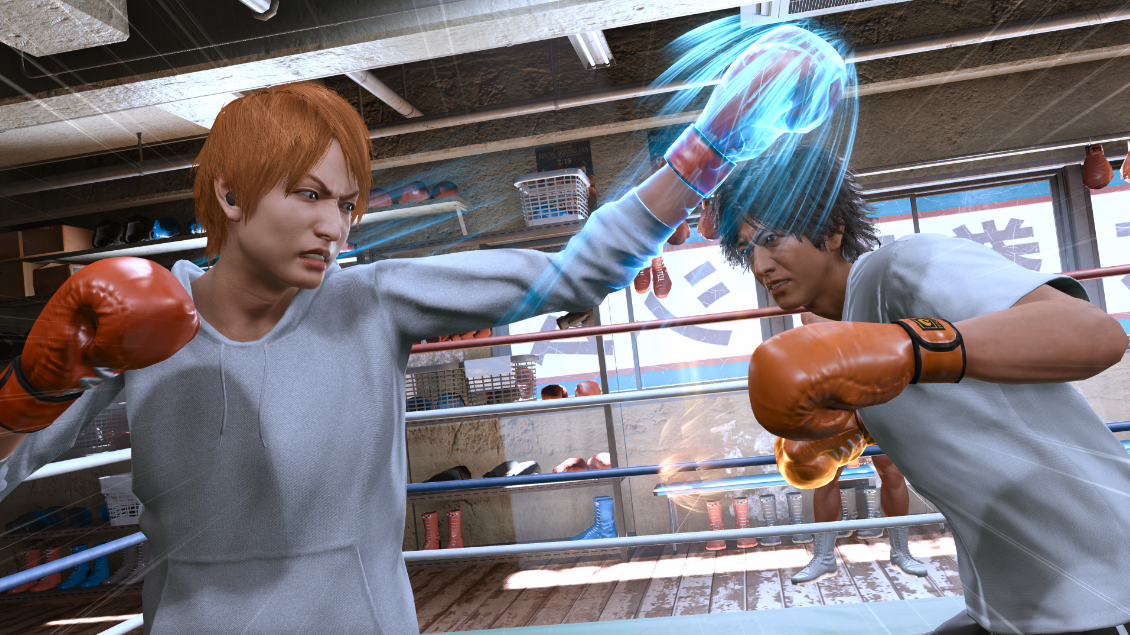 The biggest testament to these subtle enhancements isn’t the big mystery of the main story, however, but the new School-Stories feature—a separate series of side quests that are independent of the Ryu Ga Gotoku Studio’s trademark “Side Stories/Cases” found in each of their games, this one included. The big distinction between a “School Stories” quest “Side Cases” is that each mission from the “School Stories” Casebook serves a role in unraveling another big mystery that players can chase on the side. One of the big Plot Developments of the Main Story involves Yagumi going undercover at a High School as a Club Advisor for the School’s Mystery Club. After reaching this point in the main campaign, players will soon get access to a list of other Clubs that each suspicious ties to the mysterious culprit who goes by the alias of “The Professor”; a figure who has built an underground enterprise fueled by
The biggest testament to these subtle enhancements isn’t the big mystery of the main story, however, but the new School-Stories feature—a separate series of side quests that are independent of the Ryu Ga Gotoku Studio’s trademark “Side Stories/Cases” found in each of their games, this one included. The big distinction between a “School Stories” quest “Side Cases” is that each mission from the “School Stories” Casebook serves a role in unraveling another big mystery that players can chase on the side. One of the big Plot Developments of the Main Story involves Yagumi going undercover at a High School as a Club Advisor for the School’s Mystery Club. After reaching this point in the main campaign, players will soon get access to a list of other Clubs that each suspicious ties to the mysterious culprit who goes by the alias of “The Professor”; a figure who has built an underground enterprise fueled by 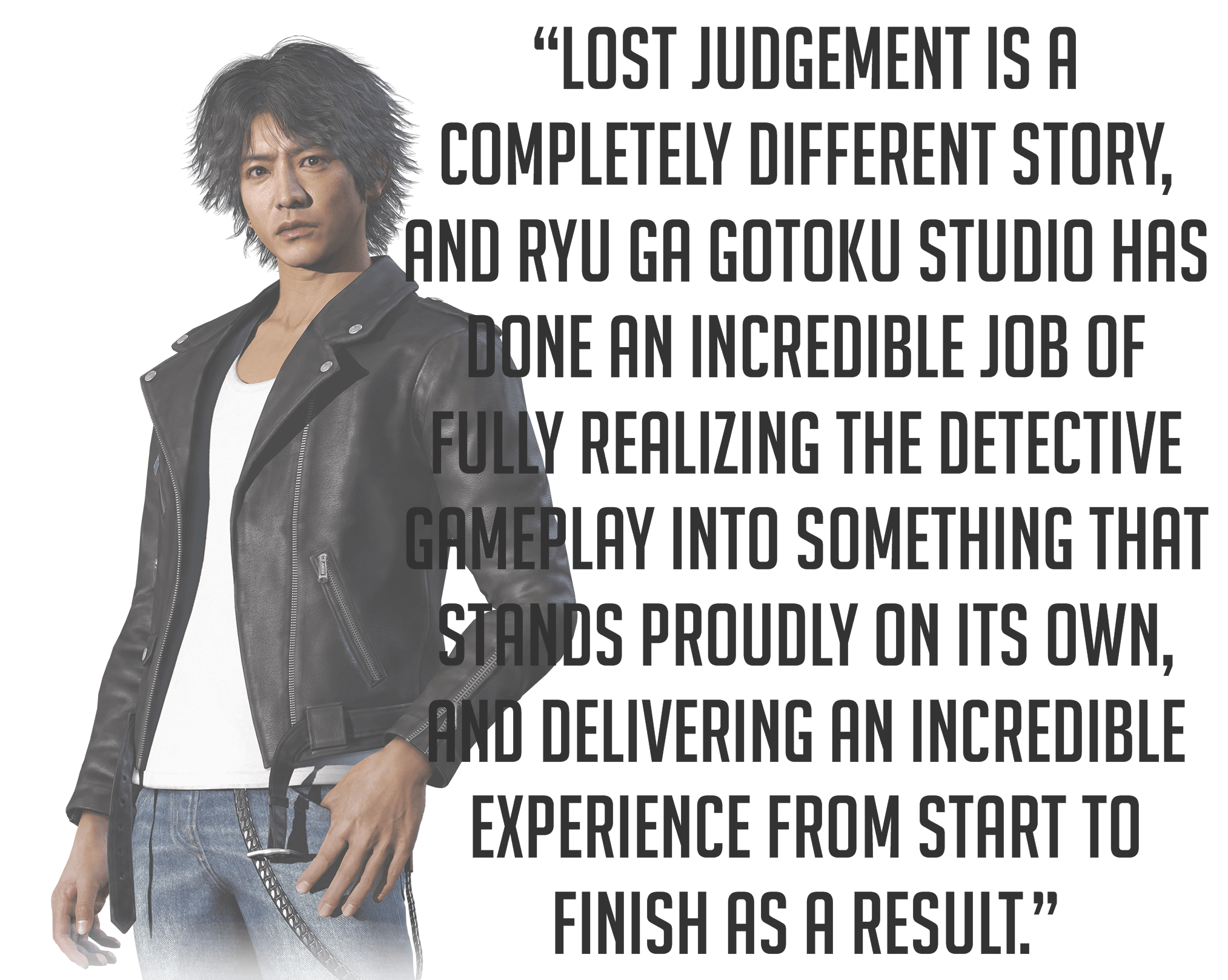 the grand exploitation of the student body through bribery and extortion. Navigating through an intricate Web Chart that carefully maps connections between other characters and the Clubs they represent, building into the grand puzzle that leads to the identity of The Professor, and their endgame. This alternative trail to chase is ironically the part of the game that delivers more on its Detective Mystery than that of the Main Campaign, and a lot of that has to do with the added autonomy the player has in the process. Instead of being tasked with scripted Leads to chase, School Stories eventually expands the list of the suspected club into a non-linear list where they can freely investigate whichever club they see fit to visit first. Regardless of what order you play them in, each new Character you meet gets their profile cataloged along with any modus operandi they may have with the Professor’s racket. It all may seem like flavor text to move the quests along, but these details actually serve a purpose as these quests will eventually lead to a climatic indictment where players will need to use all of the information and clues they’ve gathered to solve the identity of The Professor from the cast of characters they’ve encountered through the caper. Not to completely take away from the Main Plot of the game as the story is incredible in its own right, the School Stories segment is genuinely one of the most rewarding aspects of Lost Judgment because of the agency of involving its players in the Mystery-Solving process instead of simply walking them through it the way the campaign does. The one drawback is that crux behind most of the School Stories are the Mini-Games that are MacGuffins to progressing the quest, and unlike some of the Incredible Mini-Game concepts we’ve seen like Like A Dragon’s Business Management Game or Judgment’s very own Drone Racing, a list of interactive distractions this time around are pretty Hit-or-Miss across the board.
the grand exploitation of the student body through bribery and extortion. Navigating through an intricate Web Chart that carefully maps connections between other characters and the Clubs they represent, building into the grand puzzle that leads to the identity of The Professor, and their endgame. This alternative trail to chase is ironically the part of the game that delivers more on its Detective Mystery than that of the Main Campaign, and a lot of that has to do with the added autonomy the player has in the process. Instead of being tasked with scripted Leads to chase, School Stories eventually expands the list of the suspected club into a non-linear list where they can freely investigate whichever club they see fit to visit first. Regardless of what order you play them in, each new Character you meet gets their profile cataloged along with any modus operandi they may have with the Professor’s racket. It all may seem like flavor text to move the quests along, but these details actually serve a purpose as these quests will eventually lead to a climatic indictment where players will need to use all of the information and clues they’ve gathered to solve the identity of The Professor from the cast of characters they’ve encountered through the caper. Not to completely take away from the Main Plot of the game as the story is incredible in its own right, the School Stories segment is genuinely one of the most rewarding aspects of Lost Judgment because of the agency of involving its players in the Mystery-Solving process instead of simply walking them through it the way the campaign does. The one drawback is that crux behind most of the School Stories are the Mini-Games that are MacGuffins to progressing the quest, and unlike some of the Incredible Mini-Game concepts we’ve seen like Like A Dragon’s Business Management Game or Judgment’s very own Drone Racing, a list of interactive distractions this time around are pretty Hit-or-Miss across the board.
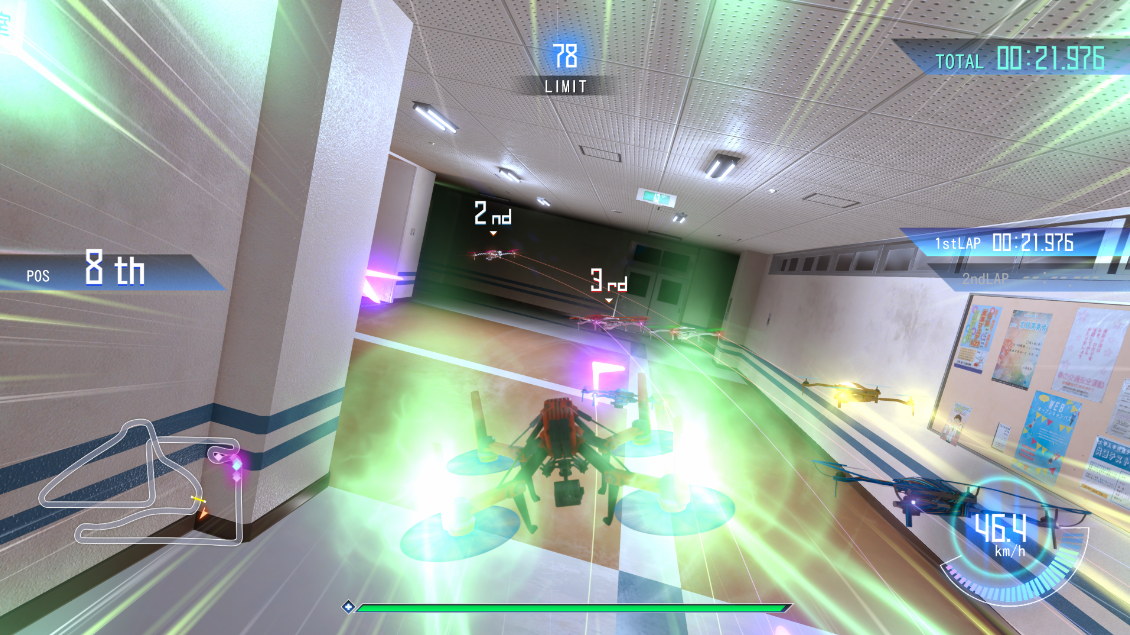
Conceptually speaking, the offering of side-musings on hand is honestly one of the most unique collections of Mini-Games produced by the studio yet; the problems lie in their poor execution, with the majority of them suffering from sloppy controls and poor AI balancing. A prime example of this is the Robot Club Battle Mini-game that plays like a mix of Tetris meets Dominoes; the goal of the game is to fight your opponent for the chance to claim as many grids on the field as you can with different shapes that randomly spawn on the field. The core components at play have a lot of potential to offer in terms of top-down strategy the likes of Qix and Catan, but the clumsy combat dynamics, and sluggish movement of your remote-controlled droid, coupled with Opponent’s near-expert tactics to compete against nearly pisses away the whole thing down the drain. The only way to progress under these conditions was to repetitively grind non-qualifying bouts for extra robot parts so that I could customize our Club’s Mechanical blunder of a Bot with some middling 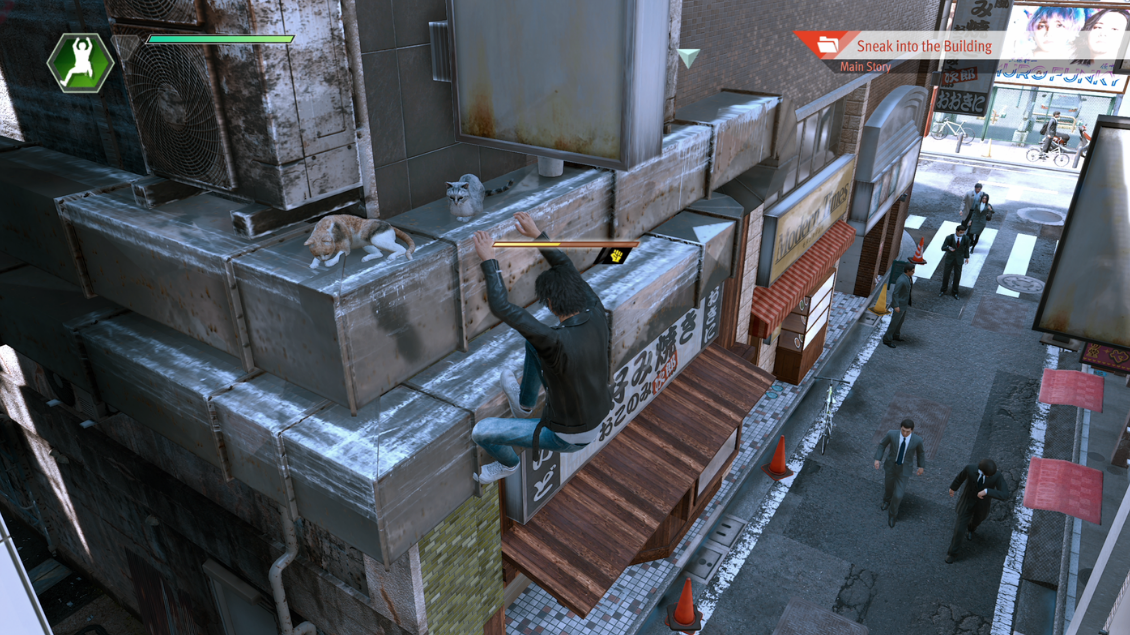 upgrades that only amounted to the slightest of edges in my follow-up attempts for the Case-driven matches to move the mystery along. There were some instances where I even exploited certain spawn points for the shape by putting all of the stock power I could into our robot’s movement speed, cheesing my way to victory instead of indulging upon the nuances the gameplay had intended for players to use near the endgame portion of the Mystery.
upgrades that only amounted to the slightest of edges in my follow-up attempts for the Case-driven matches to move the mystery along. There were some instances where I even exploited certain spawn points for the shape by putting all of the stock power I could into our robot’s movement speed, cheesing my way to victory instead of indulging upon the nuances the gameplay had intended for players to use near the endgame portion of the Mystery.
Mind you, that’s just ONE of the poorly fleshed-out Mini-Game—like shoddy context sensitivity for Camera subjects in the Photography Club, and the Motorcycle Club section, which is just…bad, like, arguably the worst of them all. Faulty Mini-Games withstanding, the other titles available are competently designed, but are a tad uninspiring as a result. The Boxing Club is a pretty bare-bones take on EA’s Fight Night franchise, and the Skateboarding Club is an even shallower version of Tony Hawk Pro Skater at its infancy. Again, they’re not bad, just not as deep as some of the other Mini-Games we’ve seen from Ryu Ga Gotoku Studio like their Fishing Questlines or Hostess Management games in prior titles. Thankfully, the narrative does a lot of the heavy lifting to compensate for the shortcomings of the mini-Games involved, and really adds to the “Hit-the-pavement” energy that Yagumi is intended to portray as a Private-Eye Detective.
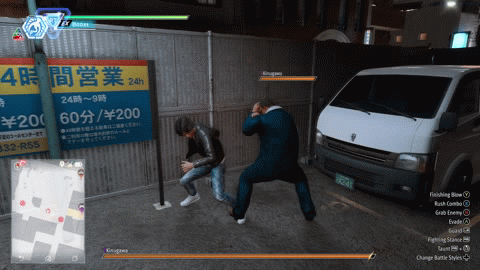
There is one big component of the game that has received some major polish this time around, and that’s the nuances of the Fighting Style-driven combat engine; Lost Judgment introduces a few big tweaks that do wonders for the accessibility of its admittedly complex workings. Yagumi’s Martial-Arts Skills centered on two specific disciplines, the Tiger Style, a Power-heavy form that’s better used in one-on-one skirmishes, and the Crane Style, an art that has a weaker impact, but is great for transition maneuvers and crowd-control. In order to battle effectively with Yagumi, players needed to discern which style would be the best response to an encounter, or in some advanced instances, when to bridge certain techniques between styles to unleash a devastating combo that can take down even the staunchest of foes. While exciting in concept, the finger-yoga needed to pull off the inputs for some of these advanced maneuvers were discouragingly difficult to pull off, and even some of the flashier EX Actions steadily became disproportionate to the criteria needed to execute them—these issues, however, are non-existent in Lost Judgment.
For starters, the contextual sensitivity needed for high-end skills or EX Actions has been significantly expanded for an easier execution that doesn’t demand you do a Cat’s Cradle with the controller. Factors like Hitbox Detection and Environmental collision have also been tightened up to ease the process of combo or style bridges, helping players maneuver Yagumi much more fluidly between the punches and dodges. In addition to the touched-up combat, the Wiry Detective has also added a whole new style to his repertoire, the Snake Style—a skill set that’s founded upon deceptive blows, and evasive maneuvers for situations that call for a more defensive approach. Where the Street-Wise Detective can block any attack regardless of whatever Martial Art he has equipped, but the way of the Snake is the only Discipline where Yagumi can perform Parry reversal that deflects enemy attacks that will open up for some devastating retaliatory attacks. The style is also unique for the way Yagumi throws his strikes with many of them combining the Hard-Hitting impact of the Tiger style with the Sweeping Reach of the Crane Style, varying up your offense against foes with stubborn defensive tactics. Despite the addition of a whole new style, and the handful of new combos and techniques that comes with it, Ryu Ga Gotoku has never achieved a combat system built with such a balance of approachability and deep mechanics like they have Lost Judgement.
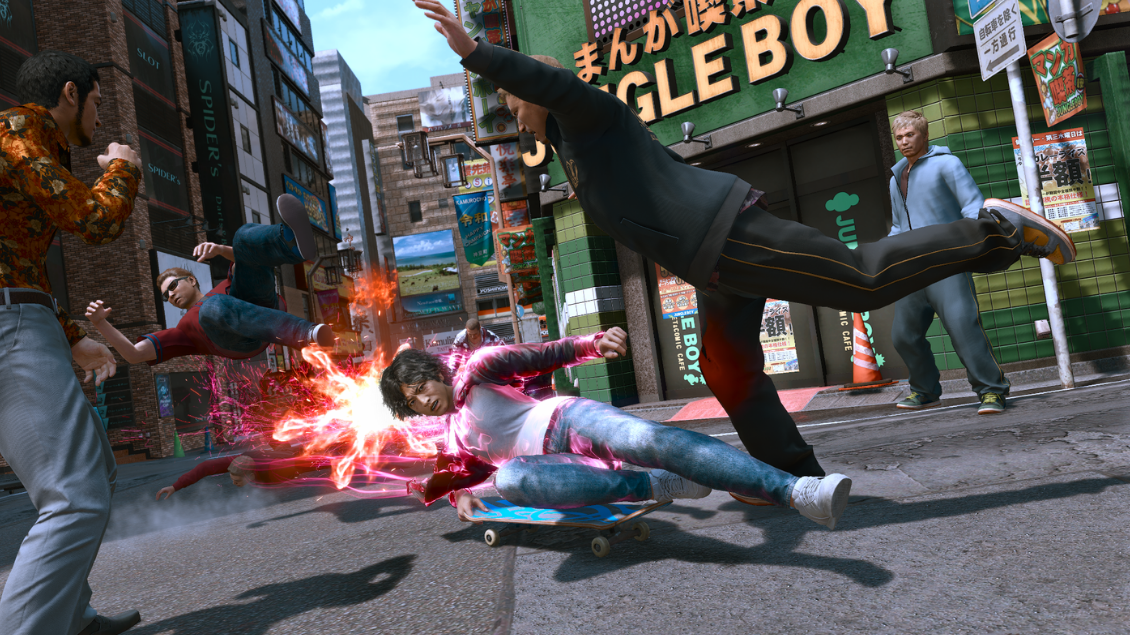
Overall, I really can’t heap enough praise onto Lost Judgement for completely surpassing my expectations, even if they were set pretty low by its somewhat disappointing predecessor. I initially applauded Judgement for being a fresh spin on the Yakuza formula, but chided it for not doing much else in its own right. Lost Judgement is a completely different story, and Ryu Ga Gotoku Studio has done an incredible job of fully realizing the Detective Gameplay into something that stands proudly on its own, and delivering an incredible experience from start to finish as a result.
I’m not sure what the future of this franchise is with considering the strange Japanese Licensing laws limiting the portrayal of Yagumi in international marketing due to the real-life likeness of Takuya Kimura that was used for the character, in addition to the sententious departure of Yakuza Creator, Toshihiro Nagoshi, from Ryu Ga Gotoku. Here’s to hoping that the folks behind SEGA make the effort to keep Judgment going, especially now that the series is hitting its stride.
 Judgment,
Judgment,  Late to The Party,
Late to The Party,  Lost Judgment,
Lost Judgment,  Nintendo Switch,
Nintendo Switch,  PS5,
PS5,  Ryu Ga Gotoku Studio,
Ryu Ga Gotoku Studio,  Sega,
Sega,  Stadia,
Stadia,  Steam,
Steam,  Toshihiro Nagoshi,
Toshihiro Nagoshi,  Xbox Series X | in
Xbox Series X | in  Features
Features 



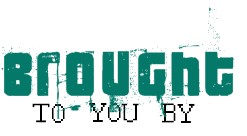






Reader Comments